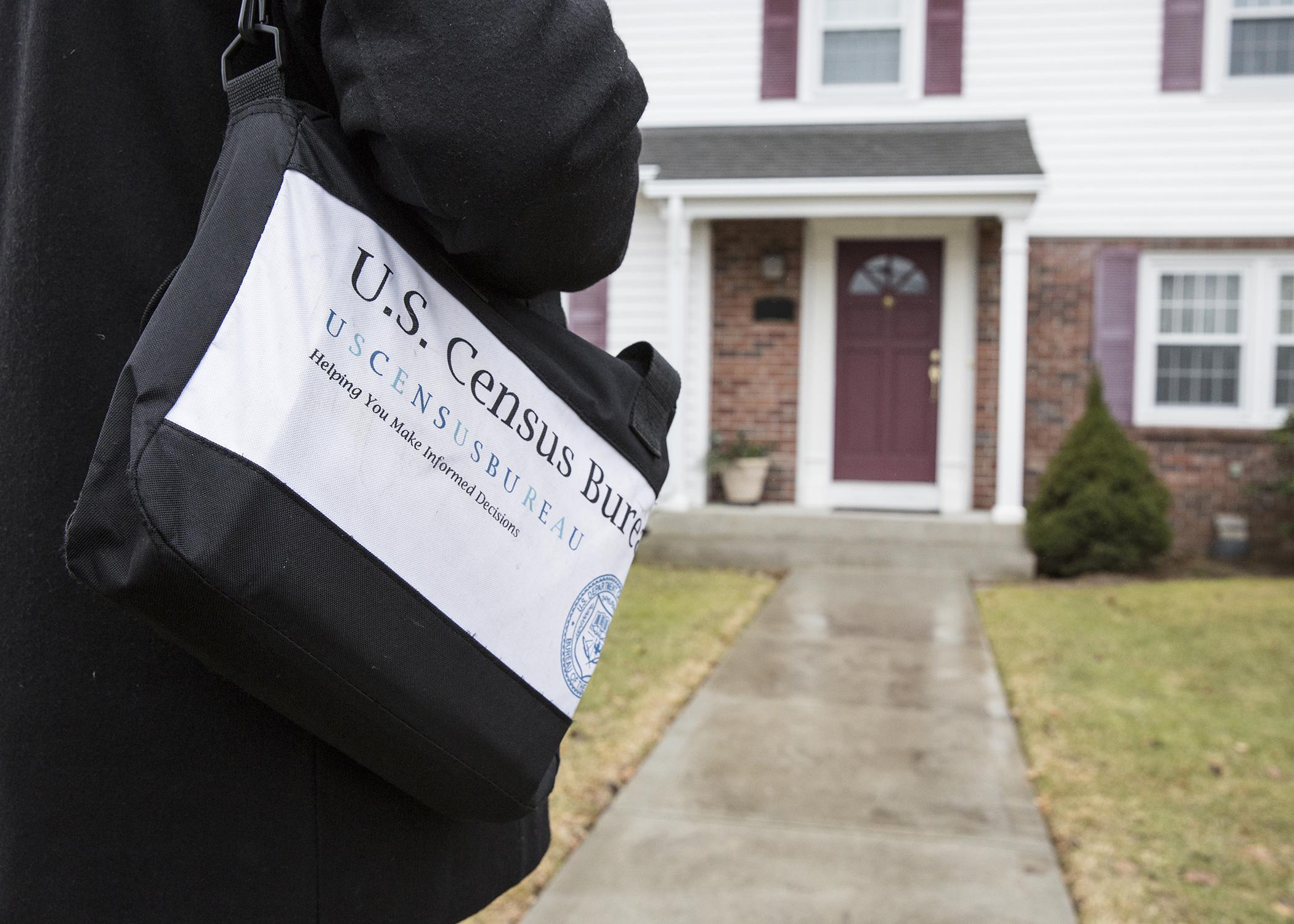There was an audible sigh of relief in DC Wednesday after Congress approved a stop-gap funding measure to keep the government running for three more months. But if you think that means conservative lawmakers have put away their shears, think again.
Part of the broader partisan fight over federal spending is an ongoing effort to cut funding for the Census Bureau, cuts that would directly impact low-income minority and immigrant households nationwide.
Why is Census Bureau funding so important? More than $2.1 trillion in federal funding is distributed every year using census data, which is essential to ensuring that economically-disadvantaged communities across the country get their fair share. But for more than a half century ethnic minorities and low-income households have been systematically undercounted in every decennial census, meaning that year in and year out they’ve been short changed when it comes to the federal funding support they need.
It’s time to change that.
Fortunately, under the leadership of Dr. Rob Santos, the Bureau’s first Latino Director, the Census Bureau has made it a top priority to accurately enumerate historically-undercounted communities in Census 2030. The cuts now being proposed in Congress would knee cap these efforts, eliminating adequate funding to support key research, planning, and improvements in data collection.
What’s at stake with Census funding?
What are the stakes for communities where poverty is rampant? Census undercounts in historically-undercounted neighborhoods compromise the equitable allocation of billions of dollars in federal funding for ESEA Title I support for enhanced instruction in schools with concentrations of students living in poverty, Section 8 housing assistance, community health centers, and WIOA funding for workforce skills development, to name just a few.
In essence, a census undercount affects communities now and well into the future, undermining health, housing, young people’s educational success and overall well-being.
Historically undercounted communities
How big of a problem is census undercount? Official estimates show that in Census 2020 Hispanics were undercounted by 4.99% (about 3.1 million people) and that American Indians on reservations were even more seriously undercounted – by 5.64%. At the same time, Non-Hispanic Whites were overcounted by 1.64% – an equity gap of about 7%. Other ethnic populations, such as Blacks and Pacific Islanders also continued to be undercounted.
In fact, these national-level estimates probably understate the problem. Recent Census Bureau research shows that in 2020 almost 10% of the population living in homes in high poverty areas – where response rates tend to be lower – were omitted from the census. There is also a serious undercount of immigrants and of non-citizens, especially working-age Hispanic non-citizens, than had previously been estimated.
Subsequent analyses colleagues and I have done also reveal deep pockets of local census undercount in both urban and rural low-income neighborhoods – especially where there are concentrations of Hispanic immigrants or farmworkers.
Billions of dollars are at stake, money vulnerable communities deserve and need to move forward. Yet just as the Census Bureau is taking steps to ensure greater equity, the Republican-dominated House Appropriations Committee is now proposing a 20% reduction below what the Biden administration is seeking to fund the Bureau as part of the Commerce, Justice, Science and Related Agencies omnibus spending package.
Anti-immigrant sentiment drives proposed cuts
Let’s be clear, this is not just about fiscal conservatism. There is a profound and ongoing indifference among some in DC to the role that accurate data play in achieving greater equity in contemporary society. More troubling still is evidence this indifference stems from a deeply anti-immigrant and xenophobic political agenda.
The House version of the CJS bill proposes (in Section 559) that “aliens who are unlawfully present in the United States” should be excluded from the Census Bureau’s count in 2030 and in future censuses. This is not what the Constitution requires and is a violation of principles the Supreme Court has already upheld. The Census is supposed to count everyone here.
Nevertheless, election denier and virulently anti-immigrant Congressman Troy Nehls (R – Texas) last week went further and introduced an amendment to expand the prohibition to exclude even lawfully-present non-citizens from the census count.
The challenges to achieving an accurate count, meanwhile, continue to grow.
Growing challenges to counting communities
Public willingness to respond to surveys such as the annual American Community Survey – which supports census data – is plummeting alongside trust in government. At the same time, rising housing costs are forcing more low-income families to “double up” into crowded households that have historically been the hardest for the Census Bureau to count. Finally, the digital divide threatens to widen the gap in levels of response between affluent and low-income neighborhoods.
The Census Bureau deserves the funding it needs to overcome these and other challenges, to assure an accurate mirror of contemporary life in the U.S. and equity for undercounted populations and communities. Refusal to authorize the investment needed undercuts the Bureau’s ability to generate the sound statistical data it needs to fairly allocate funding, undermining legislative intent and decreasing the overall cost-effectiveness of federal spending.
The currently proposed budget-cutting effort appears to be ideologically-inspired and conceptually corrupt. It undermines sound and effective government spending; and should be opposed by every voter and every elected official who believes in good government.
Ed Kissam has researched census data issues for more than three decades and published extensively on differential undercount of farmworkers and Latinos. He is a member of a national network of experts and stakeholders, The Census Quality Reinforcement Task Force. On X, formerly Twitter: @edkissam.




